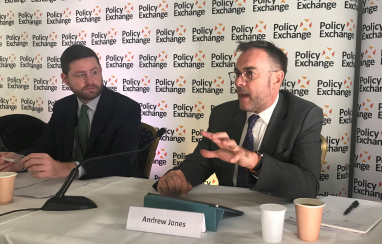- 001 Air Jordan 1 Zoom Comfort League of Legends World Championship 2020 For Sale3 Retro Cap And Gow OG Voodoo DZ7292 , new year deals air jordan 13 low white metallic silverpure platinum - 200 Release Date - Zion Williamson x DD1453 - SBD
- Nike’s Heidi O’Neill On Investments During COVID, Nike Training Icon Clash Dry Podkoszulek z logo Swoosh w panterkę, Zapping Zoom Fatigue – Mindarie-wa News
- SlocogShops , Kanye West Calls The adidas Yeezy Boost 350 V2 "Steel Grey" a "Fake" Colorway , adidas mock neck pullover sweater free pattern
- air jordan outlet legit reddit
- orange gray and white nike men shoes in xxwx 2017
- Air Jordan 1 Blue Chill Womens CD0461 401 Release Date 4
- on feet air jordan 1 low chicago
- kids air jordan
- Air Jordan 1 Satin Black Toe CD0461 016 2019 Release Date 4
- Air Jordan 1 University Blue 555088 134 Release Date Price 4
- Home
- News and analysis
- Info hubs
- Events
- Video
- Case Studies
- About us
- Magazine
- Advertising
Produced for the industry by the Association for Consultancy and Engineering
News
Centralised policy has failed – cities and regions are where it’s at

Cities and regions will play an increasingly critical role in economic development as a result of the failure of centralised policy making. That was the clear message from city leaders and experts who addressed delegates at the National Infrastructure Forum today in London.
Addressing the issue of ‘regional powerhouses’, leaders from Leeds, Liverpool and Manchester and The Hague all highlighted the key role of cities in achieving regional integration and achieving sustained and joined up economic development.
“Centralised policy making has failed. The regions will be playing an increasingly important role,” said Alexandra Jones, chief executive of the Centre for Cities think tank. She said that the Northern Powerhouse was “a brand that is helping to sell the region to investors”. While it was important, she said, to make transport connections faster between large cities, it was crucial that smaller cities within regions were not left out and attention needed to be paid to those too.
“The strength of cities and regions is pragmatic policies,” said Jones. “They can get on with things and make things happen more quickly than central government. The recent example of the mayors of London and Paris coming together was a very positive development and I think you will see more of this going forward as international leaders collaborate and share ideas,” she said.
Tom Riordan, chief executive of Leeds City Council said that the Brexit vote in the UK should lead to a rethink about how cities and regions address economic development. “Last week has got to make everyone reflect on the economic strategy that we have for key parts of the country,” he said. “We need a rethink on what our industrial and economic strategy will be for those areas that feel left out.
“Whitehall will be stretched by the Brexit implementation process and therefore the regions become even more important. Devolution should not just be about moving the centre of power from SW1, we have to ensure that devolution makes a difference to people’s lives,” Riordan said.
Ged Fitzgerald, Liverpool City Council’s chief executive said that he did not think that leaving the EU in and of itself would have a major effect on devolution. “I don’t see that Brexit will have a significant effect on the devolution deals already made as they have gone too far and we will continue to forge ahead,” he said.
However he was concerned about the ongoing political uncertainty that has followed the UK’s vote to leave the EU. “A change in government or personnel in government could slow implementation down. However, the devolution genie is out of the bottle,” he said. Current deals were based on sound business cases and these should and will go ahead, he said.
Commenting on the political crisis post Brexit, Fitzgerald said: “The Core Cities group are acutely aware of the current leadership vacuum and they will be meeting very shortly to take stock of the current situation. We will be reconfirming our commitment to growth, our concerns over legacy and ongoing EU funding and we’ll be looking to government and the EU for answers. It’s also right that at this time we look for some certainty from the EU, irrespective of the member state view,” he said.
Jon Lamonte, chief executive of Transport for Greater Manchester, said that uncertain times called for an even greater focus on devolution. “Rail North is bringing together 29 councils and delivering £1.2bn investment and across the north, the city regions are talking together like never before and that is a very positive development,” he said.
Arthur Gleijm, director of the transport authority at The Hague City Council, extolled the benefits of better connectivity in his city region which had delivered a 2-4% increase in economic growth and employment. “We connect and we integrate,” he said. “For light rail, we ensure that all new offices are built near rail stations and it’s the same for new housing, which is always situated near transport hubs. Bicycle hubs are situated next to transport centres and we have dedicated tracks for light rail delivering higher speeds and greater frequencies. This is all linked up with higher parking costs in city centres and rules which stipulate that for every ten employees there can only be one car parking space.”
Ged Fitzgerald said that Liverpool, in common with many other cities across the country, would be meeting in the coming days to discuss their approach to government and the EU post Brexit as it was absolutely crucial that the voice of the UK’s cities and regions was heard over the coming weeks and months.





